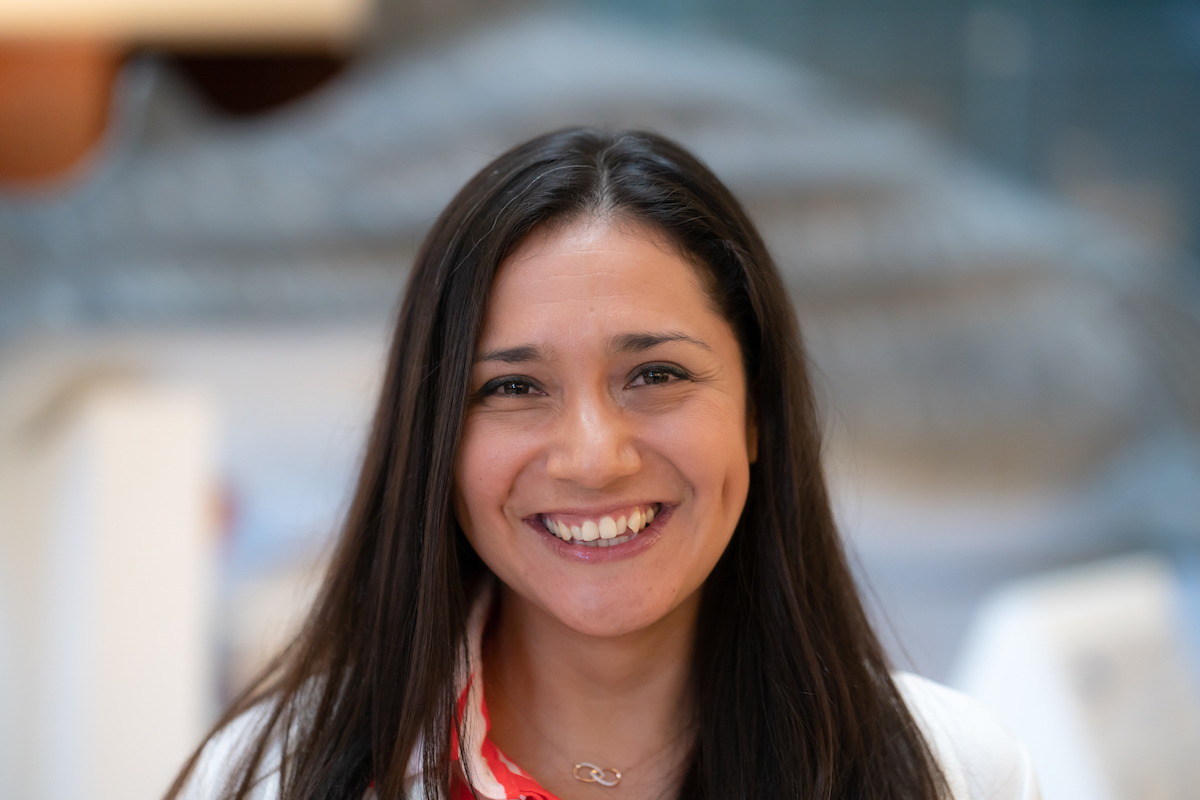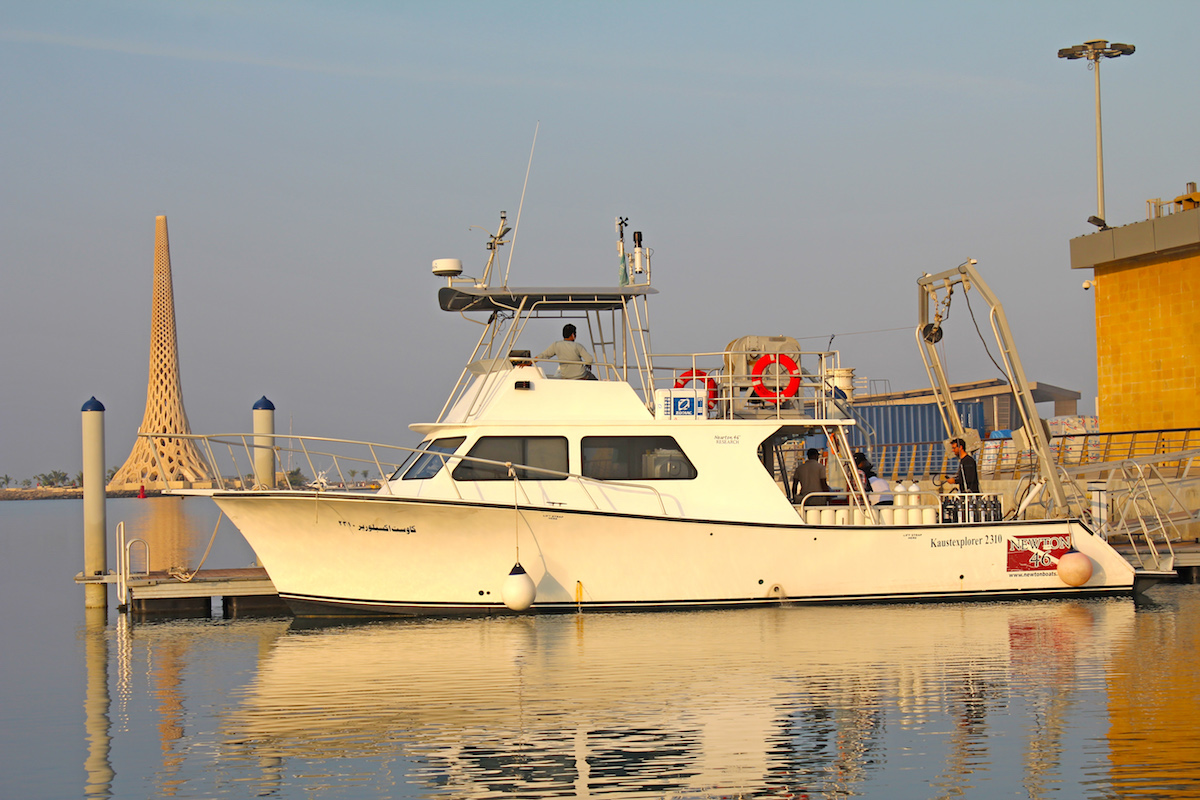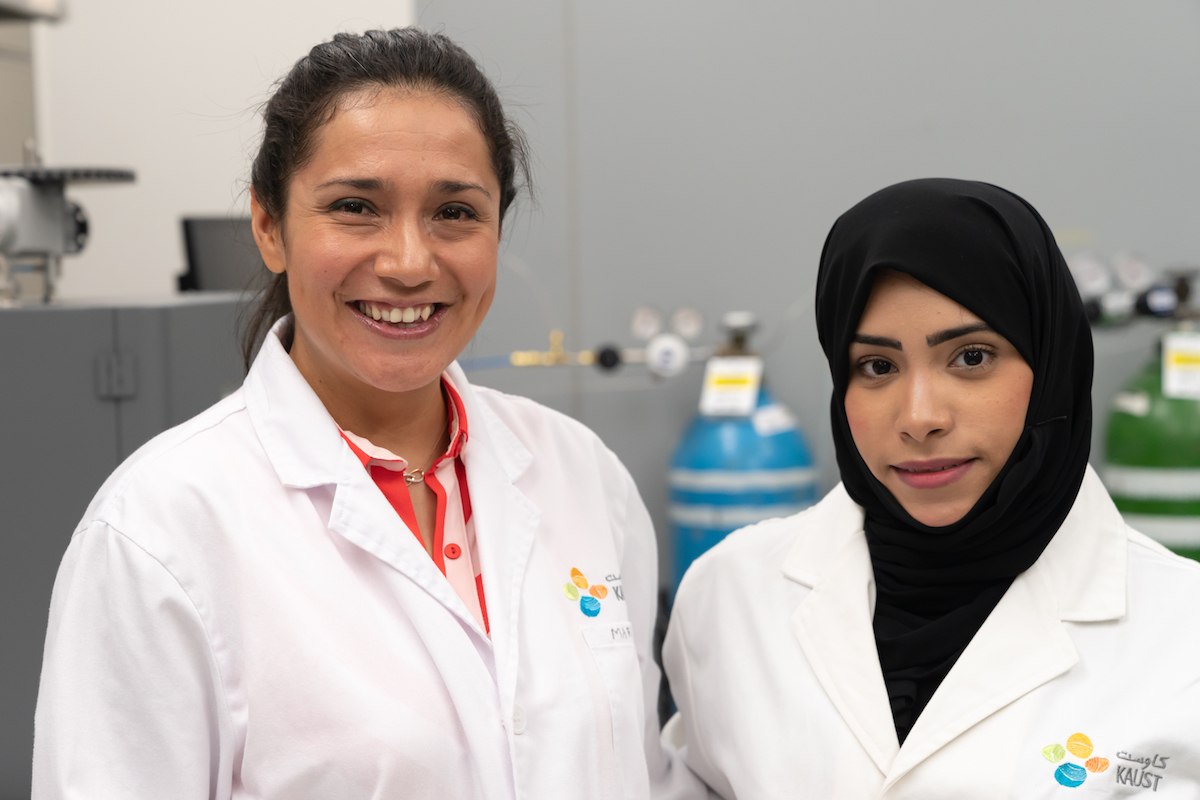Postdoctoral Fellow Focus: Daffne López-Sandoval

KAUST postdoctoral fellow Daffne López-Sandoval found inspiration in the work of famous ocean explorer Jacques Cousteau for her marine science research. Photo by Andrea Bachofen-Echt.
-By David Murphy, KAUST News
Single-minded determination married with innate curiosity led KAUST postdoctoral fellow Daffne López-Sandoval to where she is today.
López-Sandoval's journey to becoming a marine scientist in the University's Red Sea Research Center began at a young age after she watched a documentary by Jacques Cousteau, the famed French filmmaker, oceanographer, researcher and undersea explorer. Cousteau's documentary focused on nuclear tests performed by the French government at the Mururoa atoll, and it instilled in López-Sandoval a passion for marine life and research.
"I knew from a very early age—maybe 9 or 10 years old—that I wanted to study marine sciences," she said. "After watching Cousteau and his colleagues work aboard the [research vessel] Calypso, I knew that I wanted to do that in my life."
"After high school and against my mother's wishes—[she] deep down wanted me to become a physician or a chemist so I could stay closer to home—I decided to leave my parents' house and first move to another city in [my native] Mexico so that I could follow my dream [to] study oceanography, and later [I moved] to Spain to do my Ph.D.," López-Sandoval explained.
.jpg?sfvrsn=4b694259_1/IMG_5388(1).jpg)
Daffne López-Sandoval (first on right) stands with some of her KAUST Red Sea Research Center colleagues in front of the RV Thuwal, the University's research vessel. Image courtesy of Daffne López-Sandoval.
Exploring the unique environment of the Red Sea
López-Sandoval joined KAUST in October 2016 after working for two years as a postdoctoral researcher at the Institute of Marine Sciences in Barcelona, Spain. She first learned of KAUST after several well-known Spanish scientists joined the University.
"From my peers, I knew about the great potential and the vision of the University, and the possibility to collaborate and work with these researchers encouraged me to apply to KAUST," she said.
Her research interests at KAUST focus on marine microbes—and particularly microalgae. These organisms play a fundamental role in the productivity of the Earth's ecosystem. Despite their microscopic size, they are accountable for sequestering approximately half of the CO2 generated worldwide.
"At KAUST, my research has focused on the development of new tools that enable us to measure microalgae productivity, [also] known as primary production. With this new methodology—and in combination with more traditional techniques—we have been able to quantify the productivity of these organisms and to identify the main drivers that regulate their metabolic activity," she said.

One of the University's smaller research vessels is pictured anchored on campus. KAUST's location on the shores of the Red Sea makes it a perfect place for marine researchers like Daffne López-Sandoval. Photo by Ryan Yangyang.
One of López-Sandoval's goals is to study to what extent and under which circumstances chemical signaling defines the composition of marine microbial communities.
"One of the aspects of microbial ecology I am deeply interested in is microbial interactions," she noted. "This research involves analyzing not only the rates to which organic carbon is being produced and excreted by the microbes but also characterizing those metabolites."
Mentoring the next generation
In addition to her core work, which falls under the supervision of KAUST Professor Susana Agusti in the Biological Oceanography Lab, López-Sandoval also devotes time to mentoring and training KAUST students. The opportunity to interact with the next generation of marine scientists is one of her most favorite activities at KAUST.

Daffne López-Sandoval (left) mentors young Red Sea Research Center students—such as Ph.D. student Afrah Alothman (right)—as part of her work as a KAUST postdoctoral fellow. Photo by Andrea Bachofen-Echt.
"[Through mentoring,] I have had the opportunity to work closely with Saudi students—[and] mostly women [students]," López-Sandoval continued. "I think that our contribution to the formation of a talented base of female scientists in the country can be highly beneficial to the Kingdom. I value these relationships because they enrich my path and life."
Related stories:
- Student Focus: Ahmed Alabdulghani
- Student Focus: Bruno Antonio Pulido Ponce de León
- Postdoctoral Fellow Focus: Anastasiya Bavykina
- Postdoctoral Fellow Focus: Adrian Galilea

